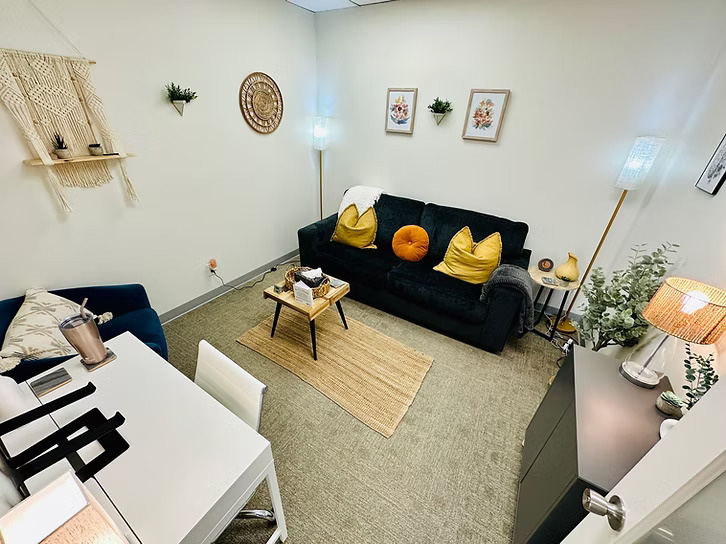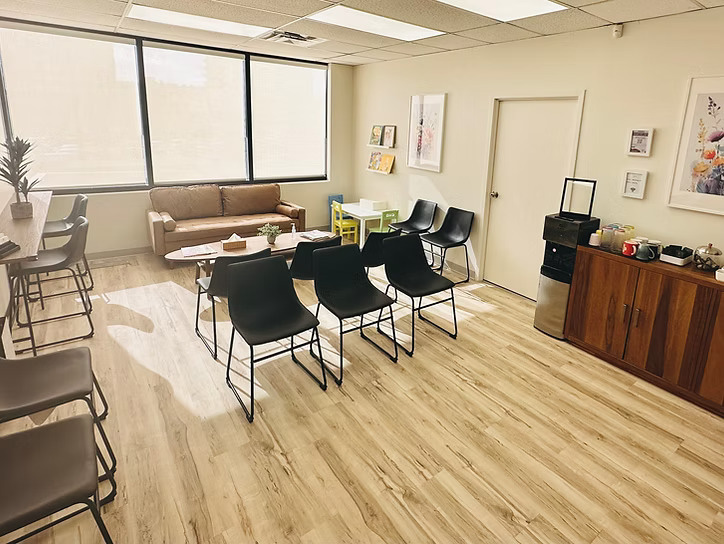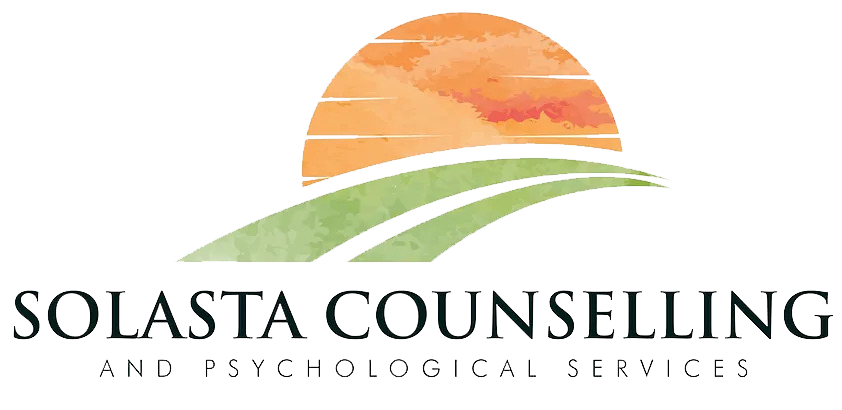Play Therapy Calgary
Through play, art, and creative activities, children explore feelings and develop coping skills for issues like anxiety and trauma.

What is Play Therapy?
Play therapy Calgary is a form of psychotherapy that allows children to communicate their thoughts, feelings, and experiences through play. Since children may not have the language skills to express complex emotions, play therapy provides a natural outlet for them to explore their inner world.
Our therapists use various tools and activities, such as toys, art, sandtray, and games, to help children process difficult emotions, reduce anxiety, and develop healthy ways to cope with life’s challenges.
Why is My Child Not Talking About Their Feelings?
Children often struggle to articulate their emotions, especially in times of stress or difficulty. Play therapy allows them to express feelings they may not fully understand or know how to talk about yet.
This nonverbal form of communication helps children process experiences they may be unable to verbalize.

Common Issues Treated with Play Therapy
Play therapy Calgary provides a safe space for children to process complex feelings, build coping skills, and work through trauma or difficult experiences in a non-threatening way.

It also allows therapists to observe and address behavioural issues in a dynamic, interactive setting. Common issues that are treated with play therapy include anxiety, depression, anger, and trauma-related concerns. Children may also benefit from play therapy if they are dealing with grief, adjusting to life changes like divorce or relocation, or experiencing difficulties in school or with peers.
Additionally, play therapy helps children who are struggling with behavioural issues such as aggression, defiance, or withdrawal. Some of the most common issues that children face and can be addressed with play therapy include:
Anxiety and Stress
Children face pressures from school, social expectations, and family life, which can lead to anxiety.
“Why is my child so anxious all the time?”
Play therapy can help children explore the sources of their anxiety and develop relaxation techniques and coping strategies to manage their feelings.
Trauma and Abuse
Traumatic events such as abuse, bullying, or the loss of a loved one can have a lasting impact on a child’s mental health.
“How can play therapy help my child heal from trauma?”
Play therapy provides a safe environment for children to process their experiences, re-enact situations, and work through their emotions at their own pace.
Behavioural Challenges
Some children act out due to unmet emotional needs or a lack of coping mechanisms.
“Why does my child act out so much at home and school?”
Through play therapy Calgary, children can understand and manage their emotions, reducing challenging behaviours such as aggression or defiance.
Grief and Loss
Children who experience the death of a loved one or another significant loss may not know how to express their grief.
“How can my child cope with the loss of a family member?”
Play therapy provides a healthy space to explore and process the emotions tied to grief, helping children heal in a supportive environment.
Social and Peer Issues
Social struggles, like making friends or resolving conflicts with peers, are common among children.
“How can my child build better friendships?”
Play therapy helps children develop social skills and practice problem-solving, improving their interactions with others.
What to Expect in Play Therapy at Solasta
When you bring your child to Solasta Counselling for play therapy Calgary, here’s what you can expect:


A Safe Space for Your Child

Parental Involvement

Child-Centered Therapy

Progress Monitoring

Comprehensive Support Through Therapy
We involve parents by offering guidance and updates on your child’s progress, ensuring they are supported both in therapy and at home.
How Play Therapy in Calgary Can Help
Play therapy Calgary offers children a safe and engaging way to explore their emotions and work through challenges.

Using play as a natural medium, therapists help children process experiences and build resilience. Through play, children can express feelings they may not yet have words for, developing essential skills and emotional strength in a supportive, child-centered environment.
Play therapy offers several key benefits to children facing emotional and behavioural challenges. Here’s how play therapy can support your child:
Emotional Expression and Healing
Through play, children can express emotions they may not be able to communicate verbally, such as fear, sadness, or anger.
“How will my child express their feelings in therapy?”
Through creative activities like drawing, building, and role-playing, children can safely explore their emotions, which promotes emotional healing and understanding.
Behavioural Management
Children who struggle with behavioural issues can benefit from play therapy, as it helps them understand the causes of their actions and learn healthier ways to express themselves.
“Can play therapy help my child stop acting out?”
Yes, it can provide children with tools to regulate their behaviour, manage impulses, and develop self-control in various situations.
Building Self-Esteem and Confidence
Children often face challenges related to self-worth, body image, or social acceptance.
“How can play therapy help my child build self-confidence?”
Through therapeutic play, children gain a sense of accomplishment and learn to view themselves positively, which enhances their self-esteem and confidence.
Coping with Trauma
For children who have experienced trauma, play therapy Calgary offers an essential outlet for processing emotions in a safe, non-threatening way.
“How does play therapy help my child with trauma recovery?”
By engaging in symbolic play, children can safely confront past trauma, process their feelings, and build resilience for the future.
Improving Communication Skills
Play therapy helps children express themselves and develop effective communication skills.
“What if my child struggles with expressing their feelings?”
Play therapy encourages children to use their imagination and creativity to communicate their needs, desires, and frustrations, improving their ability to express themselves verbally over time.
Common Questions About Play Therapy
If you’re considering play therapy for your child, you might have some questions about how it works and what to expect.

What Age Group is Play Therapy Suitable for?
Play therapy Calgary is most commonly used for children aged 3 to 12, but it can be adapted for older children and even teens, depending on their needs.
How Long Do Play Therapy Sessions Last?
Sessions typically last between 50 minutes. Your therapist will adjust the session length based on your child’s needs.
What Types of Activities Will My Child Do During Play Therapy?
Children may engage in various activities like drawing, playing with toys, using art materials, and participating in games designed to facilitate emotional expression and problem-solving.

Why Choose Solasta for Play Therapy Calgary?
Our therapists are experienced in working with children and use a variety of play-based techniques to help them express themselves and heal from emotional challenges.
Calgary Counselling and Psychology Services
Our Calgary psychologists have a wide range of experience and expertise in understanding the unique needs of our clients and helping you reach your therapy goals.
CAP
All of our psychologists are registered with the College of Alberta Psychologist.
PAA
Many of our psychologists are members of the Psychology Association of Alberta.
CCPA
Many of our psychologists are members of the Canadian Counselling and Psychotherapy Association.
Therapists Specializing in Play Therapy

Only

Only

Only

Only

Only

Only

Only
We’re Located in Calgary, Alberta
We provide counselling and psychological services in-person in Calgary and online counselling throughout Alberta.
Suite 200, 1716 16 Ave NW, Calgary AB
*free parking behind the building
Our Calgary Office Space
Our thoughtfully designed counselling spaces are crafted to create a warm, welcoming environment where you can feel completely at ease.







Get Started With Solasta in Three Easy Steps
Find Your Therapist
Book Online
Choose a date and time that fits your schedule and receive instant confirmation of your appointment.
In-person or Online
Visit our welcoming Calgary office or meet with your therapist online from the comfort of your home.
FAQs
What types of therapy do you offer at Solasta Counselling?
At Solasta Counselling, we offer a wide range of evidence-based therapies tailored to your individual needs.
These include Cognitive Behavioral Therapy (CBT), Acceptance and Commitment Therapy (ACT), Dialectical Behavior Therapy (DBT), EMDR for trauma, Narrative Therapy, and Gottman Method Couples Therapy.
Each approach is designed to help address specific challenges, whether you’re dealing with anxiety, depression, relationship issues, grief, trauma, or other concerns.
How do I know if therapy is right for me?
Therapy can be helpful if you’re experiencing emotional or psychological challenges that affect your daily life, relationships, or well-being.
Common signs include persistent feelings of sadness or anxiety, difficulty coping with stress, or a desire for personal growth and self-discovery.
If you’re unsure, an initial consultation can help you explore your concerns and determine if therapy is a good fit for you.
What can I expect during my first session?
Your first session at Solasta Counselling will focus on understanding your unique situation and goals.
You’ll discuss your current challenges, personal history, and what you hope to achieve in therapy.
This session allows your therapist to tailor a treatment plan that suits your needs, while also giving you an opportunity to ask questions and build a comfortable, trusting relationship.
Do you offer virtual or in-person counselling sessions?
Yes, Solasta Counselling offers both virtual and in-person sessions to accommodate your preferences and needs.
Virtual therapy allows you to access support from the comfort of your home, while in-person sessions provide a private, welcoming environment at our Calgary location and throughout Alberta.
Both options ensure the same level of care and confidentiality.
How long does therapy usually take?
The length of therapy varies depending on your goals and the complexity of your concerns.
Some clients see improvement in just a few sessions, while others benefit from longer-term support.
Your therapist will work with you to set realistic expectations and adjust your treatment plan as you progress.
Is therapy confidential?
Yes, all sessions at Solasta Counselling are confidential.
We follow strict professional and legal guidelines to protect your privacy.
The only exceptions involve safety concerns, such as risks of harm to yourself or others, which your therapist will explain during your initial session.
